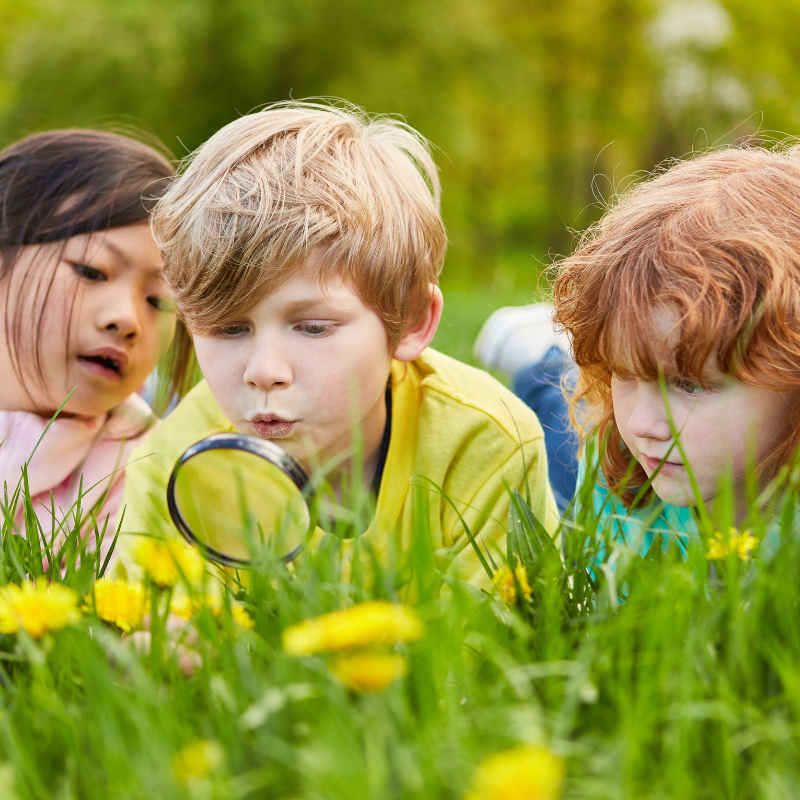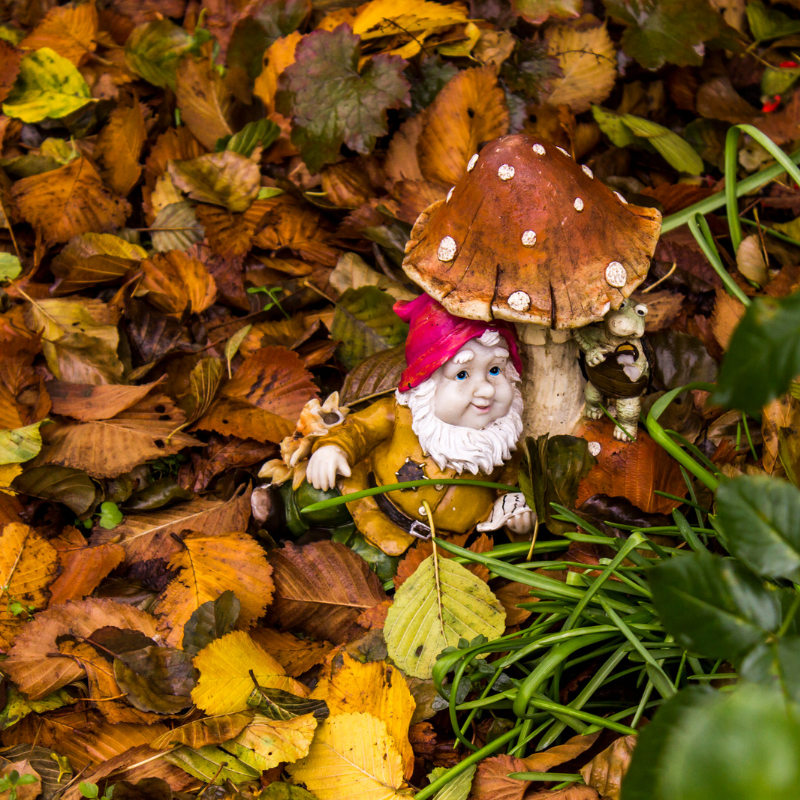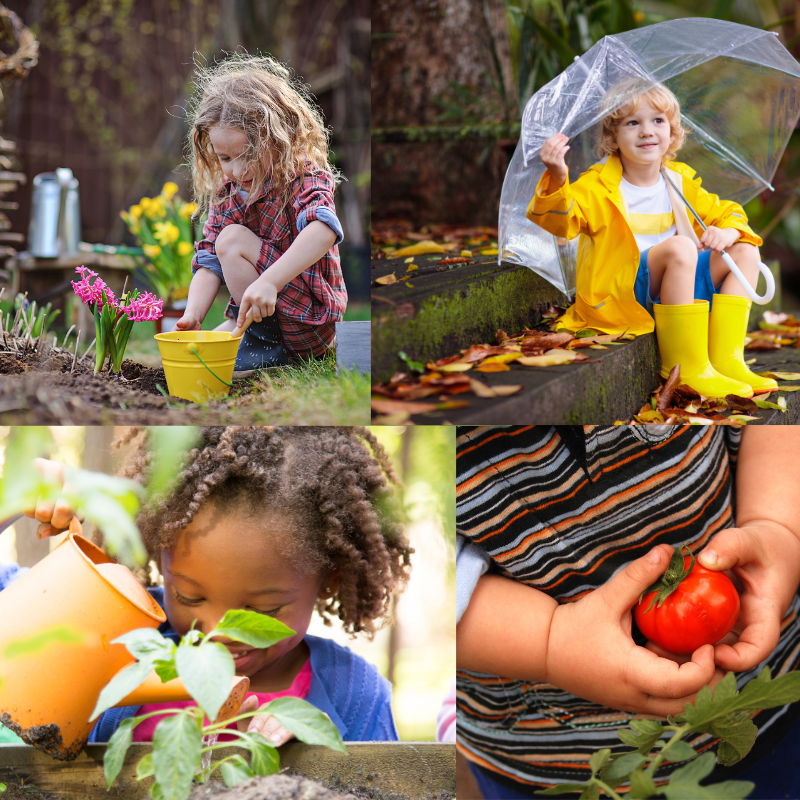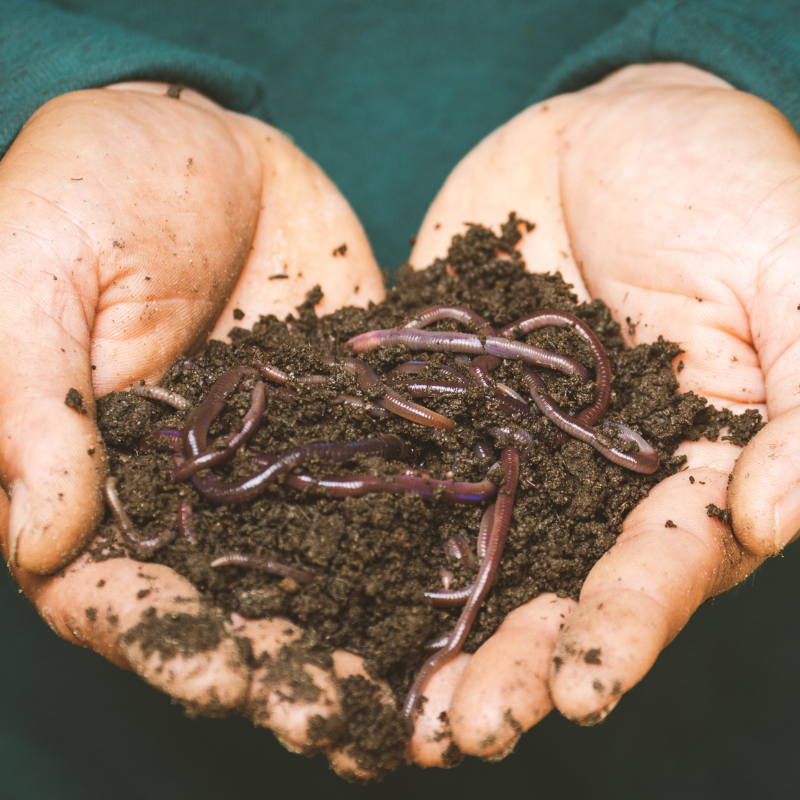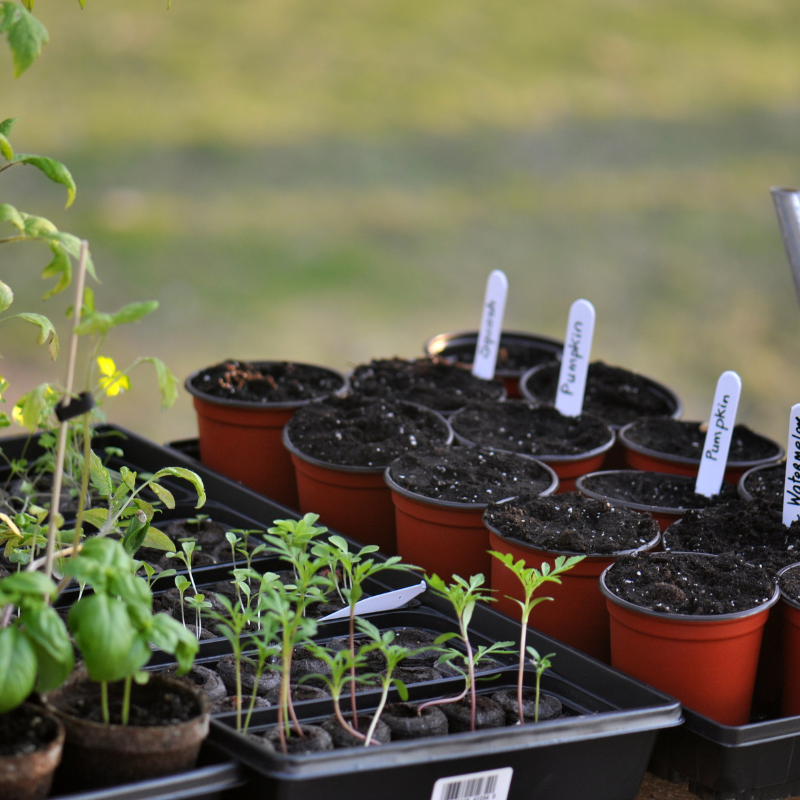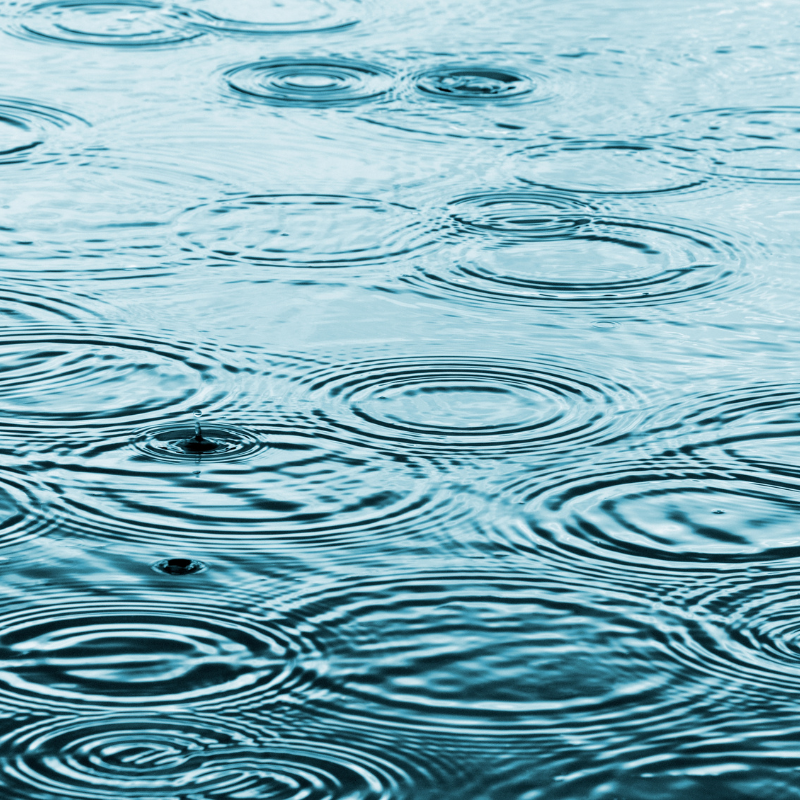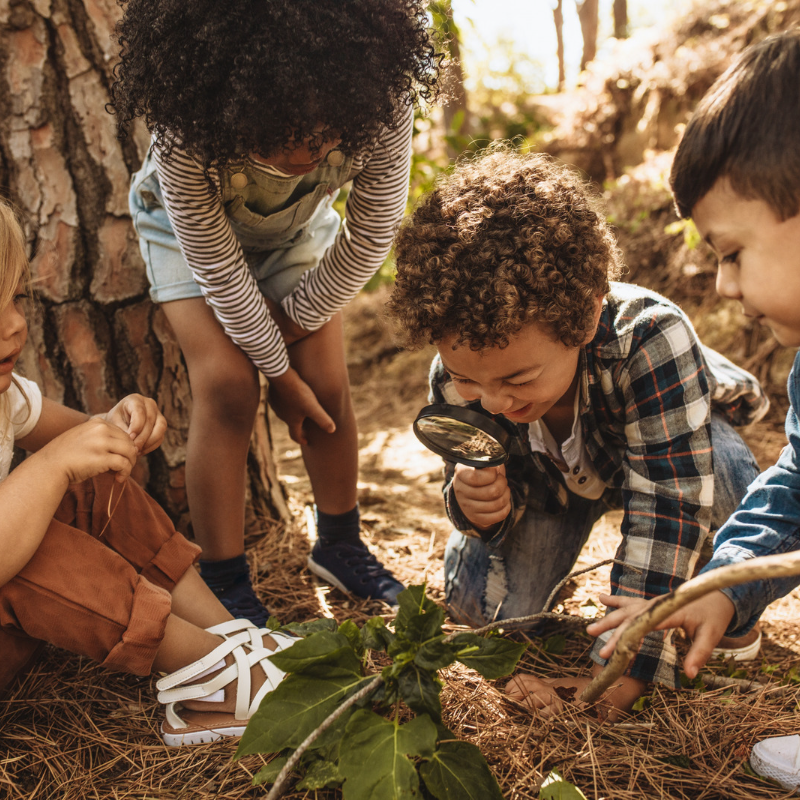Welcome to our unique program selection for home learning networks! Whether you are a homeschool parent or group teacher, these garden based nature programs are filled with curriculum rich learning experiences for your child. We offer full day, drop in and series programs. If you are looking for inspiration for program ideas, in addition to those listed below, please take a look at our HCP Kids - Workshops for ideas.
If you are interested in having us design something for your needs, please reach out to us at [email protected]
Garden Creatures (Preschool to Grade 2)
Worms, snails, birds and snakes! Join us in the garden to discover all the animals that call this place home. Together, we will learn about who they are, what they need to survive, and how we can help their habitat. Level: K - Gr 2
- Date: February 28 to Mar 14, 2025
- Time: 9:45 am - 11:15 am
- Fee: $90 or $75 with Family membership
- Register: Online or Call 250-479-6162
Curricular Competency Learning Standards
Living things/Life cycle/Adaptation/First Peoples
- Demonstrate curiosity and a sense of wonder about the world
- Observe objects and events in familiar contexts
- Ask simple questions about familiar objects and events
- Experience and interpret the local environment
- Recognize First Peoples stories (including oral and written narratives), songs, and art, as ways to share knowledge
- Discuss observations
- Represent observations and ideas by drawing charts and simple pictographs
- Consider some environmental consequences of their actions
Request a Booking, email [email protected] or Call 250-479-6162
Interconnections: Our Nature Connections
Every moment in the garden provides opportunities for connections with nature, and the many parts that contribute to its existence and evolution. This program of exploration will allow us to observe plants, both native and invasive species and to learn how they survive/thrive. Discover uses for some and ways to remove others, as we strive to heal the land. Level: Gr 4 to 8
- Date: February 26 to Mar 12, 2025
- Time: 10:00 till Noon
- Fee: $90 or $75 with Family membership
- Register: Online or Call 250-479-6162
Request a Booking, email [email protected] or Call 250-479-6162
Habitats
Habitats
Come explore the different habitats in and around the gardens while connecting to other home learners in your community. Through hands-on activities, games, and crafts, we will discover the many plants and animals that live in neighbouring wetlands, forests, meadows, and of course, a backyard garden!
Request a Booking or email [email protected]
Mushrooms
Mushrooms (5 - 14 years)
We all know about toadstools and the wonderful myths created around them. Mushroom awareness is often based on their possible dangers, and they are often overlooked for their many beneficial roles. Join us and learn about how mushrooms grow, reproduce and provide awareness to another world of existence and their critical connections with plants.
Request a Booking or email [email protected]
Sensing the Seasons (Preschool to Grade 2)
Explore the gardens with your senses! Smell flowers, see bees, listen to the birds, touch the soil, and maybe even taste something delicious! No matter the season, there is always something to discover in the garden!
Curricular Competency Learning Standards
Living things/Life cycle/Adaptation/Watercycle/Seasons
- Demonstrate curiosity and a sense of wonder about the world
- Observe objects and events in familiar contexts
- Ask simple questions about familiar objects and events
- Experience and interpret the local environment
- Recognize First Peoples stories (including oral and written narratives), songs, and art, as ways to share knowledge
- Discuss observations
- Represent observations and ideas by drawing charts and simple pictographs
- Consider some environmental consequences of their actions
Request a Booking, email [email protected] or Call 250-479-6162
More than Worms! (Preschool to Grade 5)
Worms aren't the only hard workers in the garden! Come explore the other animals, bacteria, and fungi that are breaking down organic matter and turning it into soil! Get ready to get your hands dirty!
Curricular Competency Learning Standards
Living things/ Biodiversity/ First Peoples concepts of interconnectedness in the environment/ First Peoples knowledge of sustainable practices
- Demonstrate a sustained curiosity about a scientific topic or problem of personal interest
- Make observations in familiar or unfamiliar contexts
- Identify questions to answer or problems to solve through scientific inquiry
- Make predictions about the findings of their inquiry
- Experience and interpret the local environment
- Identify First Peoples perspectives and knowledge as sources of information
Request a Booking, email [email protected] or Call 250-479-6162
All You Seed is Love (Preschool to Grade 5)
In this engaging hands-on program students will learn about the plant life cycle through seed starting techniques, transplanting and the basics of plant propagation. Each student will have the opportunity to get their hands dirty and take home their planted seeds.
Curriculum Competency Learning Standards
Living Things, Lifecycle, First Peoples concepts of interconnectedness in the environment
- Demonstrate a sustained curiosity about a scientific topic or problem of personal interest
- Make observations in familiar or unfamiliar contexts
- Identify questions to answer or problems to sole through scientific enquiry
- Identify First Peoples perspectives and knowledge as sources of information
Request a Booking, email [email protected] or Call 250-479-6162
Water, Water Everywhere (Grades 2 - 7)
Do you ever wonder about water? How do plants drink with their roots? Where does water go after it rains? How does dirty water become clean? Come learn about the vital role of water in the gardens, the nearby wetlands, and the watersheds we live in!
Curricular Competency Learning Standards
Interaction with environment/ Biodiversity/ First Peoples concepts of interconnectedness in the environment/ First Peoples knowledge of sustainable practices
- Demonstrate a sustained intellectual curiosity about a scientific topic or problem of personal interest
- Make observations aimed at identifying their own questions about the natural world
- Identify a question to answer or a problem to solve through scientific inquiry
- Formulate alternative “If…then…” hypotheses based on their questions
- Make predictions about the findings of their inquiry
- Experience and interpret the local environment
- Identify First Peoples perspectives and knowledge as sources of information
Request a Booking, email [email protected] or Call 250-479-6162
Ethnobotany Explorations (Grades 2- 12)
Join us in W̱SÁNEĆ territory to learn about the cultural and ecological importance of native plants and ecosystems. Together, we will walk the Ethnobotany Trail, learn about the indigenous names and uses of plants, and discuss the importance of native ecosystems as we navigate our climate crisis.
Curricular Competency Learning Standards
Interaction with environment/ Biodiversity/ First Peoples concepts of interconnectedness in the environment/ First Peoples knowledge of sustainable practices
- Demonstrate a sustained intellectual curiosity about a scientific topic or problem of personal interest
- Make observations aimed at identifying their own questions about the natural world
- Identify a question to answer or a problem to solve through scientific inquiry
- Formulate alternative “If…then…” hypotheses based on their questions
- Make predictions about the findings of their inquiry
- Experience and interpret the local environment
- Identify First Peoples perspectives and knowledge as sources of information
Request a Booking, email [email protected] or Call 250-479-6162
Our Garden
Our Garden (5 - 14 years)
Families looking for confidence to grow their own produce can join us for Our Garden. This 2 part series is all about hands-on techniques to prepare your garden space for planting.
Week 1 will include the use of overwintering crops for soil development, creating & preparing plots, and harvesting of fall & winter crops, and making room for the spring growing season.
During week 2, we will seed trays for a variety of vegetable crops to plant out in the future. Summer planning will also be an important part of this spring series. Parent and child participation is encouraged/welcome.
- Request a Booking, email [email protected] or Call 250-479-6162
Our Food Web
Sustainability comes in lots of different forms. Let's begin a journey of discovery as we explore methods of producing our own food, the importance of soils, and how pollinators play a crucial role in this process. This 3-part series will include lots of hands-on planting of seeds and transplants for take away as well as providing a foundation for the better understanding of food growing systems and their interconnections.
- Dates & Time: TBD
- Fee: $115 or $105 with Family Membership
- Register: On-Line or Call 250-479-6162
Request a Booking, email [email protected] or Call 250-479-6162
